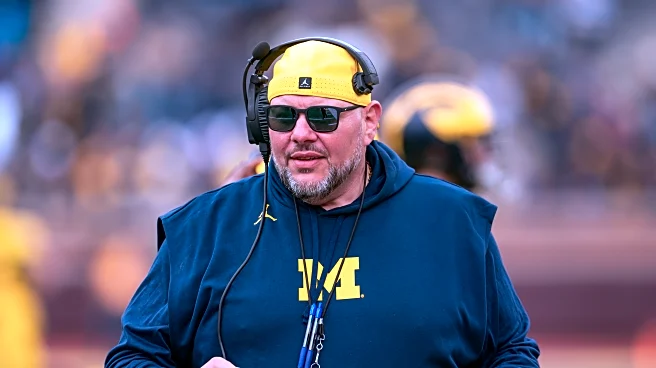What's Happening?
The Chicago Cubs concluded their regular season matchups against the Milwaukee Brewers with a 7-6 record, outscoring their NL Central rivals 60-56. The teams last faced off in August, with the Cubs winning three out of five games in the series. The Cubs' performance was highlighted by Pete Crow-Armstrong, who delivered significant contributions, including a 452-foot solo home run that helped secure a 5-3 victory in one of the games. The Cubs' victories were marked by strong offensive plays, including multiple home runs and strategic plays that kept the Brewers at bay. The Cubs and Brewers are set to meet again in the NL Division Series, with the first game scheduled at American Family Field in Milwaukee.
Why It's Important?
The Cubs' successful record against the Brewers during the regular season is crucial as they head into the postseason. This performance boosts their confidence and positions them as strong contenders in the NL Division Series. The rivalry between the Cubs and Brewers has intensified, with fan engagement and competitive spirit adding to the excitement. The Cubs' ability to outperform the Brewers could have implications for their postseason strategy and morale. Additionally, the Cubs' victories demonstrate their resilience and capability to compete against top teams, potentially influencing their approach in upcoming games.
What's Next?
The Cubs and Brewers will face off in the NL Division Series, starting with Game 1 at American Family Field. The series will then move to Wrigley Field, where the Cubs will aim to leverage their home-field advantage. Both teams are expected to bring their best strategies and players to the forefront, with the Cubs relying on key players like Pete Crow-Armstrong to maintain their competitive edge. The outcome of this series could significantly impact the Cubs' postseason journey and their chances of advancing further.
Beyond the Headlines
The Cubs' rivalry with the Brewers highlights the competitive dynamics within the NL Central division. This ongoing rivalry not only fuels fan engagement but also influences team strategies and player performances. The Cubs' ability to consistently challenge the Brewers could lead to long-term shifts in team dynamics and rivalries within the division. Additionally, the Cubs' performance may inspire other teams to adopt similar strategies to enhance their competitiveness.










